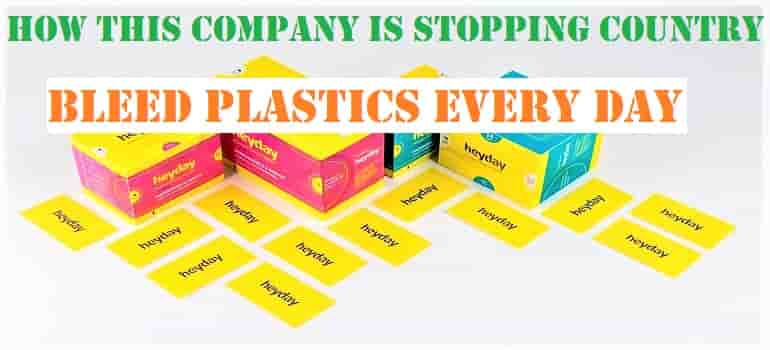Over a billion of these non-biodegradable sanitary napkins are being dumped in landfills and sewerage systems in the country. And there is no source of decomposition for about 400-500 years.
These plastic based sanitary napkins have been causing harm to both – the environment and health. Every used sanitary napkin carries two grams of non-biodegradable plastic, So the amount of non-biodegradable plastic accumulated every month is very high a factor strong enough to raise concern over the crisis which environment is facing currently.
However, Heyday founder has answers to both the environment and health issues. Deepanjali Kanoria started her company Heyday a biodegradable sanitary napkin, in October 2017.
ALSO WATCH: Interview with Deepanjali Kanoria, Founder and CEO , Heyday
The product has been evolved after research spanning over two years. Made from bamboo and corn fibre, Heyday pads are highly absorbent while being priced affordably.
Used seven layers of bamboo fibres mixed with cornstarch to give the pad a very soft texture. These are healthy and planet-friendly alternative to plastic pads.
Ninety percent of the products available in the market are carcinogenic.
Heyday is manufactured at international facilities in China and Finland, Heyday’s 12 production lines across China and Finland make over 448 million pads.
The full packet including the cover and the soiled napkin is 100% biodegradable.
One of the prime reasons for not setting up the plant in India was the absence of chemical-free soil.
These pads decompose within six months to two years of disposal


